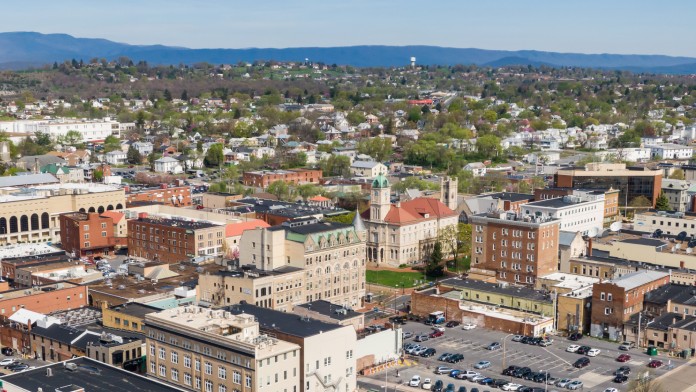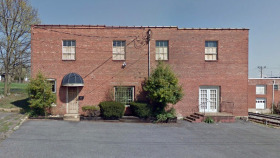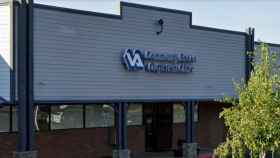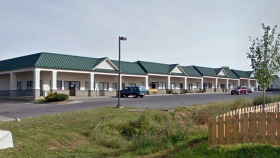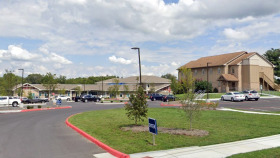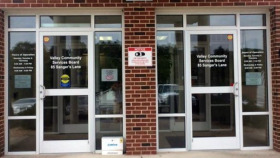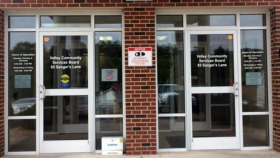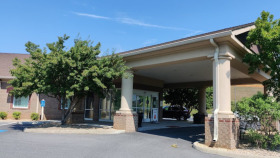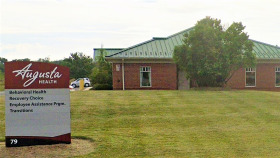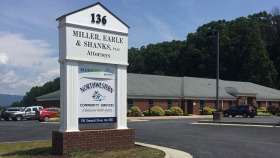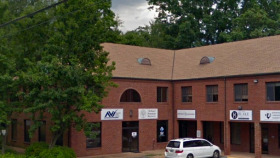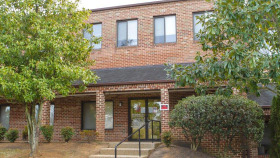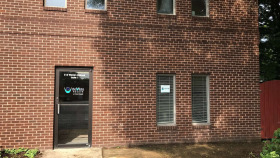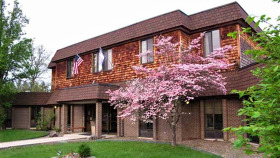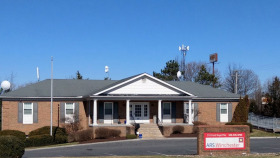Alcohol and Drug Use Statistics in Harrisonburg, VA
Just like the rest of the country, Harrisonburg, VA, has seen the impact of drug and alcohol misuse. The following statistics illustrate the extent and impact of drug and alcohol misuse in Harrisonburg, Rockingham County, and the corresponding substate region:2,3,4
About 5% of the youth reported marijuana use monthly.
Less than 1% of the residents 12 years and older reported using heroin in the past year between 2016 and 2018.
In 2020, there were two deaths from a heroin overdose.
Nearly 2% of the residents 12 years and older reported cocaine use in the past year between 2016 and 2018.
Levels of Substance Abuse Treatment
Many Virginians work their way through the following continuum of care levels. Others may begin treatment at one of the least restrictive levels.
Detox
Detox is often the initial step of treatment, which must be completed before you can transition to a formal SUD program. It is the process of safely and comfortably clearing your body of all drugs and alcohol. This occurs in a supervised setting such as a hospital or inpatient facility.
Residential or Inpatient
This is the most intensive treatment setting, involving 24/7 care. During residential treatment, you live at a rehab facility and participate in several forms of therapy, including individual and group therapy, medications, and recreational therapy.
Partial hospitalization programs (PHPs)
PHPs involve many of the same treatment methods used in inpatient care. However, you do not live at the facility. You return home during non-treatment times.
Intensive Outpatient Programs (IOPs)
This is a step down from PHPs. IOPs involve attending several hours of treatment throughout the week, which usually includes individual and group therapy.
Standard Outpatient
This is the least restrictive level of treatment. Standard outpatient programs involve a couple of hours of care per week. Virginians with a high level of motivation and a good support network typically experience success with this type of treatment.
Aftercare
Once inpatient or outpatient treatment is completed, aftercare provides continued support to prevent relapse. This may include 12-step meetings, transitional housing, or therapy.
How to Pay for Drug Rehab in Harrisonburg, Virginia
Private Insurance
The Mental Health Parity and Addiction Equity Act requires all insurance providers to cover substance abuse treatment to some extent. Because each plan differs regarding specific coverage, it is important for Virginia residents to confirm what their particular plan includes.
Virginia Medicaid
Virginia Medicaid is a government program that provides health insurance for low-income Virginia residents. To receive Medicaid, residents must meet income requirements and apply for the coverage.
Virginia Medicare
Medicare is a federally funded health insurance program for Americans aged 65 and over and certain individuals with disabilities. To participate in the program, Virginians must meet requirements and pay a monthly premium based on income. Benefits may include coverage for substance abuse treatment, if the rehab facility chosen accepts Medicare as a form of payment.
TRICARE in Virginia
TRICARE in Virginia (East region) is a nationwide program that provides health insurance coverage for U.S. military personnel, veterans, and their dependents. Benefits include some coverage for addiction treatment services.
Sliding Scale Rehabs
Sliding scale rehabs charge Virginians only what they can afford to pay for treatment, based on their income. Residents must provide proof of income to qualify.
IHS-Funded Drug Rehabs
Indian Health Service (IHS) rehabs provide free or low-cost treatment for Native Americans and Native Alaskans who need SUD treatment.

Traveling to and Within Harrisonburg, VA
If you are seeking addiction treatment in Harrisonburg, VA, or visiting a loved one in a facility in the city, these travel tips may be valuable for planning your trip.
- Harrisonburg is about 133 miles from Washington, D.C., and an 80-minute drive by car.
- Travel options to and from Harrisonburg include flights from Staunton Airport (25 minutes away) and Charlottesville Airport (an hour away).
- Harrisonburg has a subtropical climate, with hot and humid summers and winters ranging from cool to cold.
- You may need a car for most errands in Harrisonburg.
- The Harrisonburg Department of Public Transport (HDPT) offers bus service within the city with a fare of $1.00.
- Lyft, Uber, and taxis are alternate forms of transport around Harrisonburg.
- Situated between the Blue Ridge Mountains, Harrisonburg is a nature’s paradise with numerous outdoor attractions, including the Edith J. Carrier Arboretum, Rocktown Trails at Hillandale Park, and the White Oak Lavender Farm & the Purple WOLF Tasting Room. There are also several cultural attractions, such as the Virginia Quilt Museum, Hardesty-Higgins House Visitor Center, and the Brethren & Mennonite Heritage Center.
- There are plenty of hotels in Harrisonburg, including chain and boutique hotels, to choose from for your stay.
Virginia Drug and Alcohol Laws
In Virginia, lawmakers have enacted the following policies to govern substance use, overdoses, and addiction treatment.1,2,3
Good Samaritan Law: In 2015, Virginia passed its Good Samaritan Law. This offers protection for individuals who use illicit substances and experience or witness an overdose. It encourages Virginia residents to call 911 without fear of legal repercussions for minor drug-related charges.
Employee Protections for Addiction Treatment: In Virginia, substance use disorders are considered a disability, per the Americans with Disabilities Act. This means employees are protected from discrimination for having a substance use disorder. However, this law does not prevent employers from taking disciplinary action against employees who use substances during work hours.
First-time Offender Program: First-time drug offenders in Virginia can use this program to avoid jail time. Virginia residents who are charged with possession can have charges deferred while they complete a program. Conditions may include community service, substance abuse education, substance abuse treatment, and random drug tests. Successful completion of all conditions can result in a dismissal of the drug charges.
Drug Trafficking: Virginia’s laws regarding drug trafficking are stringent. In this state, it is a felony to transport, sell, or import even small amounts of controlled substances. This includes one or more ounces of Schedule I or Schedule II controlled substances such as cocaine, meth, morphine, PCP, and Ritalin, as well as five or more pounds of marijuana.
Resources
- Virginia Department of Health. (n.d.). Overdose Deaths – Opioid Data.
- College of Health and Behavioral Studies. (2019). Youth and Data Survey 2019 8th, 10th, and 12th grade study from Harrisonburg City and Rockingham County.
- Substance Abuse and Mental Health Services Administration. (n.d.). 2016 -2018 NSDUH Substate Region Estimates – Tables.

